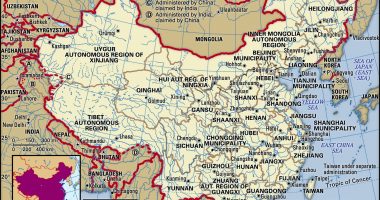Former Japanese Prime Minister Shinzo Abe was killed in an attack in Nara on July 8, which shocked the world. US President Biden and Queen Elizabeth II expressed their condolences, and Taiwan, close to Japan, reacted even more strongly. On July 11, Taiwanese President Ing-Wen Tsai announced that Taiwan’s government agencies and public schools lowered their flags at half-mast in mourning. In addition, there were continuous activities to mourn Abe in various places, and Japan’s Taipei office also received many flowers from the public.
Japan colonized Taiwan for half a century, and Taiwanese people are close to Japanese culture. Still, Abe’s popularity in Taiwan is mainly because he frequently released messages of friendliness to Taiwan when he was the prime minister of Japan. Some scholars have analyzed that Japanese politicians advocate being tough on China, and there are many “anti-China” people, but relatively few politicians support “pro-Taiwan.” Abe is extraordinary and an “Anti-China” and “pro-Taiwan” figure. After leaving office, he proposed that “if there is something in Taiwan, it is the same as if there is something in Japan, and it is like something in the Japan-US alliance,” which aroused the response of Taiwanese society.
During his tenure in office, although he failed to push for constitutional revision successfully, he was committed to increasing the defense budget, relaxing restrictions on the export of military weapons to revitalize the industry and lifting the ban on the right to collective self-defense, laying the foundation for the legitimacy of the Japanese Self-Defense Forces to participate in international military conflicts. The most significant contribution of the Abe regime is to enhance Japan’s global leadership, and it has become more active in many fields, making the United States and other allies have higher expectations for Japanese leaders.
Abe officially launched the Quadrilateral Security Dialogue (Quad) in 2007 to coordinate defense cooperation among the four democracies of the United States, Japan, India, and Australia. In 2016, he proposed that the initiative Free and Open Indo-Pacific (FOIP) expressed the idea that the Indian Ocean and the Pacific Ocean could “converge” and helped to provide a structural and conceptual thought. In some cases, it was used to replace the concept of the Asia-Pacific region.
After formally proposing this strategic concept, the Abe administration has attempted to promote Indo-Pacific connectivity in the U.S. For example, the U.S. Department of Defense changed its Pacific Command to Indo-Pacific Command in 2018. In addition, FOIP is a common term used by the Joe Biden administration regarding Asian affairs, which can also be seen as an example of Indo-Pacific thinking becoming more specific.
Besides historical factors, the non-governmental interaction between Taiwan and Japan has become more and more intimate in recent years; the 2011 Tohoku Earthquake in Japan triggered a tsunami, and the disaster was severe. At that time, donations from Taiwanese people ranked first in the world, and Japanese public opinion was very grateful that many TV and news programs had continued mentioning this matter for years. Likewise, since 2012, Shinzo Abe has repeatedly thanked Taiwanese society for assistance as a Japanese leader. Moreover, sports competitions between Taiwan and Japan, especially baseball games. After the game, all members bowed to the Taiwan team and the audience to express their gratitude.
The Taiwan Presidential Office spokesman said that when Taiwan encountered difficulties and challenges, Abe always strongly supported Taiwan, whether it was promoting Taiwan’s agricultural products, promoting the Japanese government to donate vaccines to Taiwan, or even creating a strategic framework for security of the Taiwan Strait. Taiwanese expressed condolences and gratitude to former Prime Minister Shinzo Abe by flying the flag at half-mast. They showed that Taiwan and Japan walked side by side and firmly defended the concept and determination of the values of democracy and freedom.






Comments are closed.